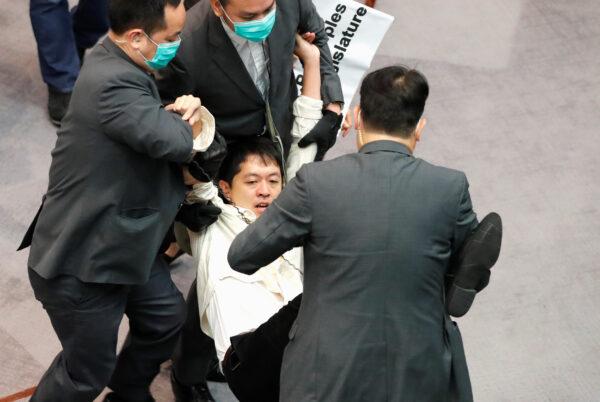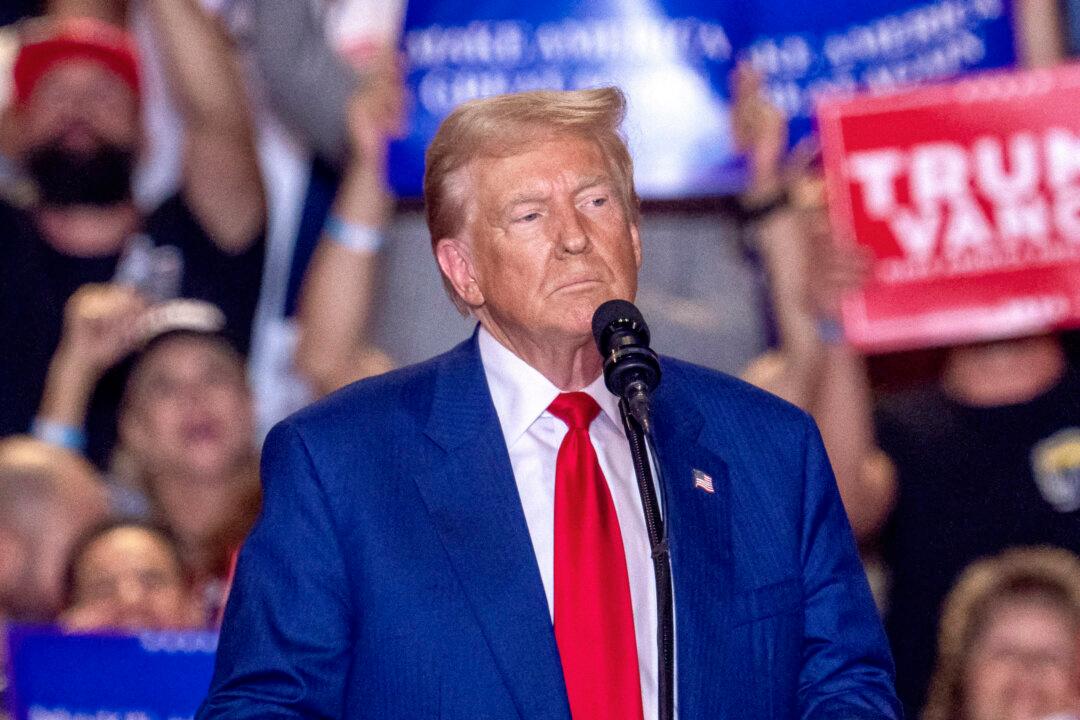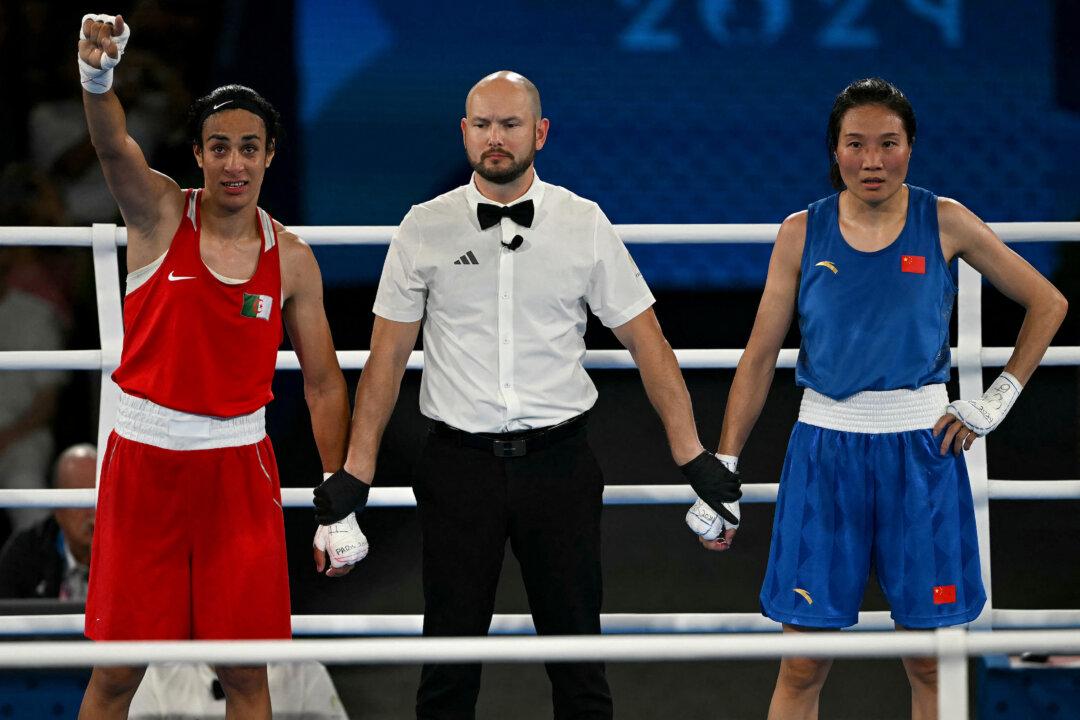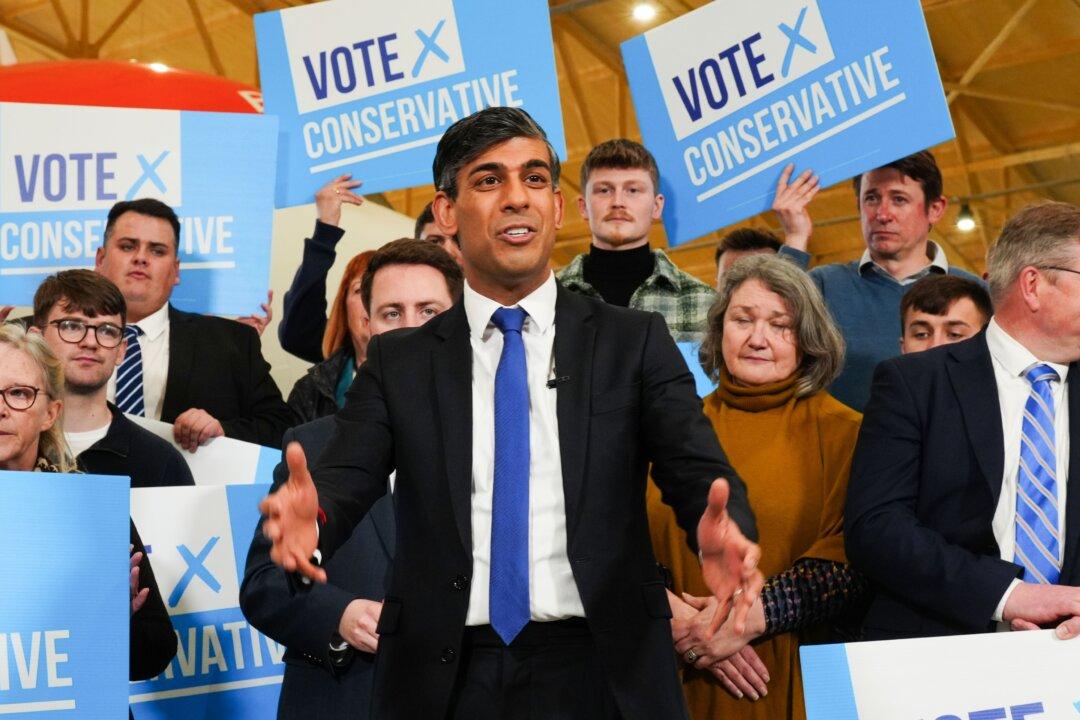Clashes broke out in Hong Kong’s legislature Monday for a second time this month as a pro-establishment lawmaker bypassed election process to be appointed as chair of a key committee that scrutinizes bills, ending a prolonged six-month struggle for control with the pro-democracy camp.
The legislature’s House Committee, which vets bills and decides when to present them for a final vote, had been without an elected chairperson since October, with the deputy chairperson standing in. The same pro-establishment, pro-Beijing majority committee was to vote on the controversial extradition bill that saw millions of Hong Kongers take to the streets in protest of growing control from Beijing in August last year.
But the Chinese Communist Party (CCP) in Beijing criticized deputy chairperson and pro-democracy lawmaker Dennis Kwok for deliberately delaying the vote for a chairperson, causing a backlog on bills that the pro-democracy camp feels will continue to increase Beijing’s control over the territory, like the controversial bill to criminalize the abuse of the national anthem of the People’s Republic of China (PRC).
Beijing accused the pro-democracy lawmakers of “malicious” filibustering to prevent some proposed bills from going to a final vote, effectively paralysing the legislature.
Kwok was replaced on Friday by Chan Kin-por, who was appointed by the legislature’s pro-establishment president Andrew Leung Kwan-yuen to preside over Monday’s election in an attempt to break the deadlock with the minority pro-democracy camp. The pro-democracy camp has questioned the constitutionality of the appointment.
When Chan took the chairperson’s seat on Monday, pro-democracy lawmakers launched a protest in the Legislative Council. They chanted “foul play” and held a placard reading “CCP tramples HK legislature.”
Pro-democracy lawmaker Tanya Chan accused security guards of Hong Kong’s legislature of “losing their impartiality,” after the security guards surrounded the bench where Chan Kin-por was seated against procedural objections by the opposition.
Some pro-democracy lawmakers tried leaping over the guards from benchtops to take back the chairman’s seat from Chan, only to be forced back, resulting in another scuffle and shouting match.

As long as the “pro-establishment camp doesn’t like something, they will do whatever it takes, including breaking the system we have and the rules we have,” Democratic lawmaker Dennis Kwok said. “The price of freedom is constant vigilance.
“They can take away the rules of procedures today but I am sure the Hong Kong people won’t forget today,” he added.
Another democratic lawmaker Ted Hui shouted at Chan that the meeting was “illegal.”

Lee’s election will likely speed up the passing of the anthem bill. Hong Kong’s pro-Beijing chief executive Carrie Lam said last week that passing the bill was a priority for the government, and the bill will be presented to the committee on May 27.
During the protest, pro-democracy lawmakers held up placards that read “Abuse of Power” and “CCP tramples HK legislature.” Within minutes, at least five lawmakers were ejected for disorderly behavior, with at least one lying injured on the ground as the meeting was briefly suspended.
“Hong Kong is marching towards the beginning of the end of ‘one country, two systems’,” said pro-democracy lawmaker Claudia Mo after the meeting ended.
“It’s painful to watch and it’s saddening to see a legislative assembly degenerate into this level of behaviour,” pro-establishment lawmaker Martin Liao said.
The former British colony was returned to China in 1997 under the CCP’s “one country, two systems” framework that gives Hong Kong its own legal system and its people greater rights than in the communist mainland.
Mo urged the Hong Kong people to vote out those who “don’t care about Hong Kong’s future” in the legislative elections in September.
Lawmakers clashed over the same issue on May 8, when Lee occupied the chairperson’s seat more than an hour before the meeting was scheduled to start, saying that external legal counsel had advised that she had the power to preside over House Committee meetings.
A physical tussle for the chairperson’s seat then ensued, with pro-democracy lawmakers accused her of abusing her power. They eventually staged a walkout, during which Lee and the pro-establishment camp cleared several bills.
Calls for Protests
Protesters have been calling on social media for city-wide demonstrations against the government’s anthem bill, which Liao acknowledged could spark social unrest.“We cannot shun our legislative duty because we think there’s a risk,” he said.
Social distancing amid the pandemic has largely put a brake on protests since January, but demonstrations are expected to resume later this year with the outbreak coming under control.
The arrest of 15 activists in April, including veteran politicians, a publishing tycoon and senior barristers, thrust the protest movement back into the spotlight and drew condemnation from Washington and international rights groups.
China’s Hong Kong affairs office warned this month that the city would never be calm unless “black-clad violent protesters” were all removed, describing them as a “political virus” that seeks independence from Beijing.
Beijing blames foreign forces for fomenting unrest and says protesters are undermining the rule of law in Hong Kong.




